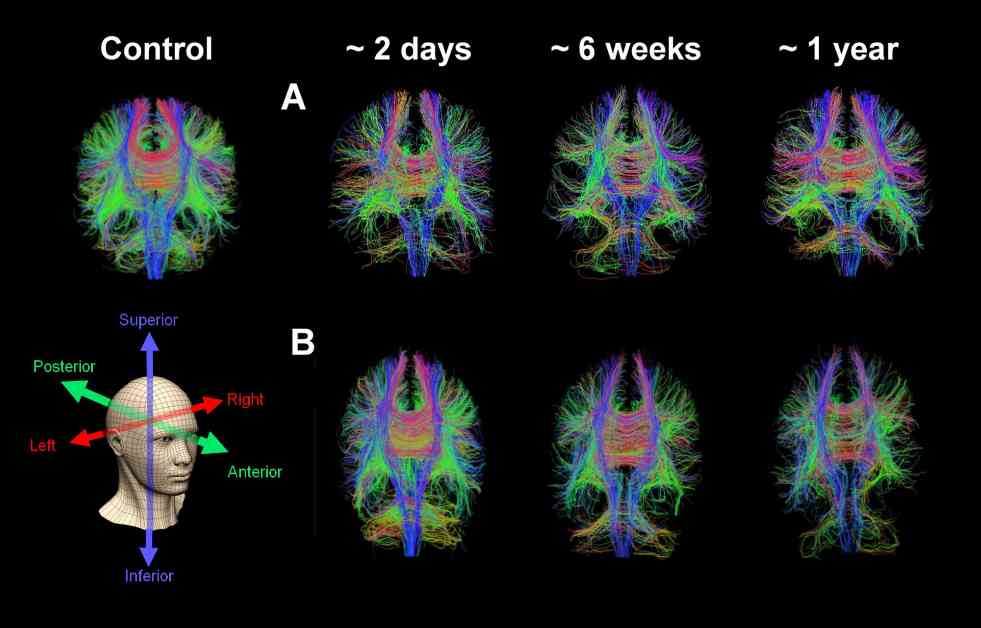Researchers at the University of Cambridge have conducted a study that suggests a new way to detect concussions using advanced MRI technology. The study focused on diffusion tensor imaging (DTI), which is a specialized MRI that can provide more accurate detection of concussions compared to traditional CT scans. This new method could help identify patients who are at risk of experiencing long-term symptoms that may go undetected with standard scans.
Concussions are a common form of brain injury, with millions of people in Europe and the UK suffering from them each year. Despite the frequency of concussions, current methods of diagnosis, such as CT scans, are limited in their ability to detect abnormalities in patients. This can result in patients being discharged from the hospital with undiagnosed symptoms that can significantly impact their quality of life.
Dr. Virginia Newcombe, who led the study, explained that many patients with concussions are sent home without the proper follow-up care because their symptoms are often dismissed or overlooked. This can lead to long-term issues such as fatigue, memory problems, headaches, and mental health issues. The use of DTI in concussion diagnosis could help address these challenges by providing more accurate assessments of patients’ injuries and prognosis.
The study involved analyzing data from over 1,000 patients who had suffered traumatic brain injuries. By using DTI scans in conjunction with blood biomarkers, the researchers were able to predict with greater accuracy which patients would experience persistent symptoms following a concussion. This new approach significantly improved the ability to identify patients at risk of long-term issues compared to current clinical models.
Dr. Newcombe and her team are hopeful that the use of DTI and blood biomarkers could revolutionize the way concussions are diagnosed and managed in clinical settings. By integrating different types of information, such as symptoms assessment, blood tests, and brain scans, healthcare providers can provide more personalized care to patients with concussions. This approach could help ensure that individuals at the greatest risk of long-term symptoms receive the necessary follow-up care to prevent life-changing consequences.
The researchers plan to continue their work by exploring ways to make the detection of concussions even simpler and more practical. By refining the use of blood biomarkers and DTI technology, they hope to develop more accessible methods for diagnosing and monitoring concussions in patients. Ultimately, their goal is to improve the assessment of concussions and provide better outcomes for individuals with these types of injuries. The study was funded by various organizations, including the European Union, Wellcome, and the National Institute for Health and Care Excellence.

